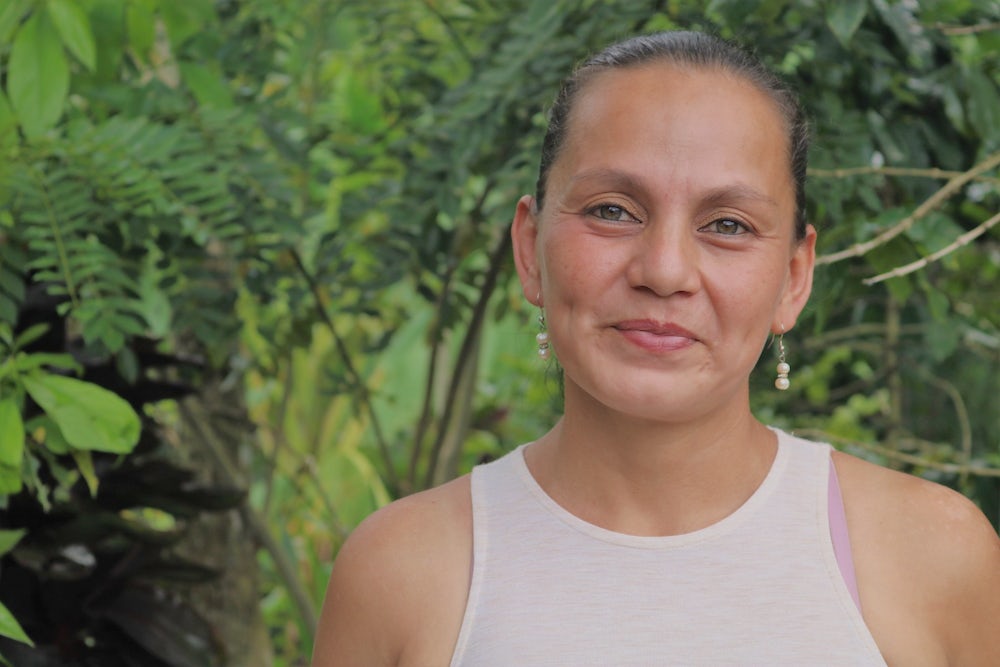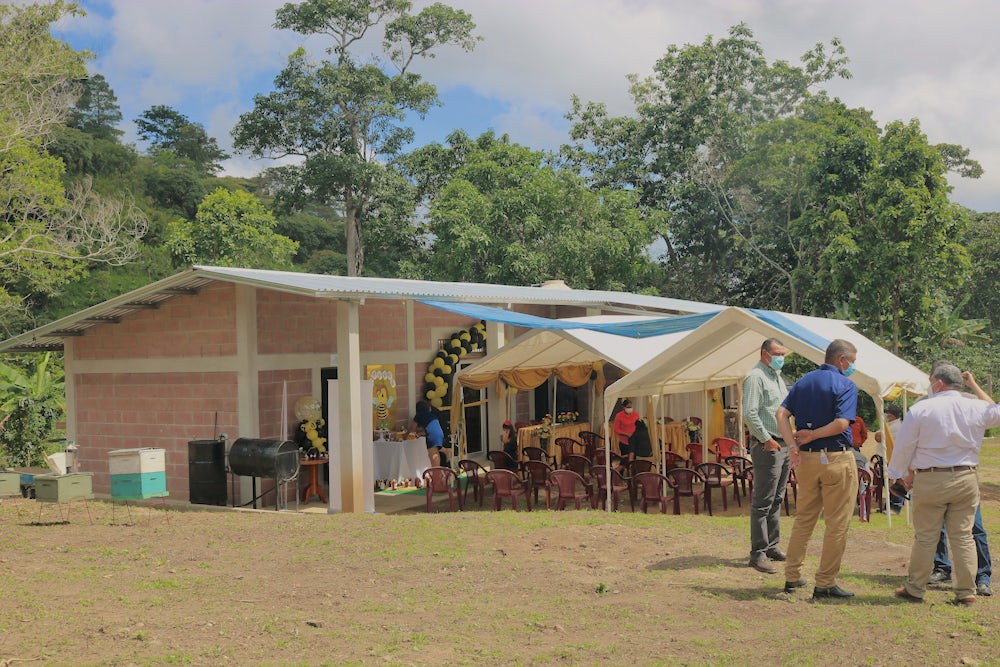Nestled in the lush mountains of eastern Honduras, the community of Las Selvas, El Paraíso, is dotted with small patches of land where farmers cultivate coffee, citrus, grains and honey.
Home to 2,500 inhabitants, Las Selvas lies in a remote area. Despite the fact that the town lies dozens of kilometers from the nearest urban center, a group of intrepid local beekeepers supported by Heifer Honduras’ Leveraging Success project has created new opportunities by making Las Selvas into an apiculture hub — by constructing a honey processing plant.

"Before, people didn't even know where Las Selvas was,” said Diana Moncada, marketing coordinator for Las Selvas Beekeeping Association, a membership group of local beekeepers. “Now everyone knows that there is a honey processing plant here and they see this as a great opportunity for all members of the community.”
The plant was a major milestone for the Leveraging Success project, which supports small- and medium-sized businesses and associations in honey, coffee, dairy and tourism to increase the average annual income of a Heifer family in Honduras from $2,350 to $4,400, the amount a family of five requires to meet their basic needs.
Leveraging Success has helped to generate nearly 8,000 permanent and temporary beekeeping jobs.
The processing plant allows farmers to scale their honey enterprises and streamline production. For the members of the Las Selvas Beekeeping Association, the processing plant represents a future of advanced production, local jobs and larger incomes.

"This group of young people is enthusiastic, and the zone has excellent potential for honey," said Marco Machado, country director of Heifer Honduras. “Beekeeping is a great bet, not only because of the importance of bees in nature, but because it is a way to diversify in an innovative, productive and resilient way."
Honeybees may be small creatures, but their environmental impact is huge. Bees influence farming practices worldwide. It’s estimated that one-third of global food production requires animal pollination and 80-90% of this role is carried out by honeybees.
Farmers who keep bees see increased crop yields, whether they are growing coffee, spices or vegetables; healthy beehives can double the yield of a small farm. The practice of beekeeping protects the environment.
.jpg?or=0&q=60&crop=faces,entropy&auto=format&fm=jpeg&shad=50&vib=20&duotone-alpha=40&duotone=000000,2CFFD4C6&w=1000)
Many of the beekeeping association’s members began as smallholder coffee farmers who sporadically engaged in honey production for domestic consumption and local sale. However, due to the wide variety of local flora and coffee production challenges, they soon realized that beekeeping could become more than just a hobby between harvests.
"Coffee prices dropped significantly, and climate change brought many diseases and pests to our crops," said Teresín Maldonado, president of the Las Selvas Beekeeping Association. "We had to find a new way to get money for our families."
In 2017, with the arrival of Heifer Honduras in the community, Maldonado and 11 other local beekeepers formed the Las Selvas Beekeeping Association to collectively hone production.
"I was a housewife with five children, and I only went out to work during coffee harvest time," said Diana Moncada, the association's marketing coordinator. "My husband had a small apiary, but I wasn't interested in bees. I didn't know how to work with them."
However, after learning about beekeeping and its benefits from a Heifer Honduras training, Moncada changed her mind. "I was excited to get organized and get started," she said. "Besides, other women friends and neighbors in the community were also there."
With ongoing support from Heifer Honduras, the Las Selvas Beekeeping Association helps members strengthen technical and administrative capacities for honey production and marketing, and its members have seen extraordinary success.
The honey processing plant represents the next chapter in their growth.
Written by: Pamela Villars
